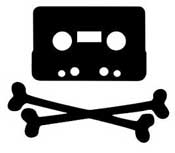Big Content’s Piracy Myth Busted: BitTorrent ‘Piracy’ Does Actually Boost Sales!
Big Content routinely cries foul over ‘piracy’ of their precious content and on that basis, uses its formidable wealth to continue persecuting file sharers – that’s ordinary people like you and me – by trying to force extortionate financial settlements or taking them to court and lobbying governments around the world to get draconian anti-consumer laws passed such as three strikes and you’re off the internet. Note that Big Content never shows in court or anywhere else, independently verified evidence of the supposed “harm” dealt by file sharing. They always rely on statutory damages and claim that it’s impossible to quantify it. So, how do they know how much “damage” is being done, then? Interestingly, looking at their financials, they’re always in rude health, even during these rough economic times around the world. This includes, music, movies and especially video games – witness the astounding sales of the latest Call of Duty series breaking all sales records recently. Something doesn’t smell right, does it?
Most file sharing studies have shown that file sharing has a neglible effect on sales, good or bad and the ones that show damage to sales tend to be funded by Big Content. However, this latest independent study, entitled “Profit Leak? Pre-Release File Sharing and the Music Industry” by Robert Hammond, Assistant Professor of Economics at North Carolina State University, claims that piracy actually increases sales of music albums. Moreover, Hammond claims that the study is much more accurate than previous ones made, since the sample size is so much larger: 1095 albums from 1075 artists on the largest private BitTorrent tracker dedicated to music. The research focused on albums that were leaked before release and found that on average resulted in 59.6 additional sales, a small, but clearly measurable benefit. Interestingly, the artists to gain the most were the widely known ones, with the little known ones not affected by file sharing at all.
The study can be downloaded here (681KB PDF) or viewed online courtesy of scribd here and the professor’s website is here.

“I isolate the causal effect of file sharing of an album on its sales by exploiting exogenous variation in how widely available the album was prior to its official release date. The findings suggest that file sharing of an album benefits its sales. I dont find any evidence of a negative effect in any specification, using any instrument,” Hammond concludes in his paper.

Comments are closed.